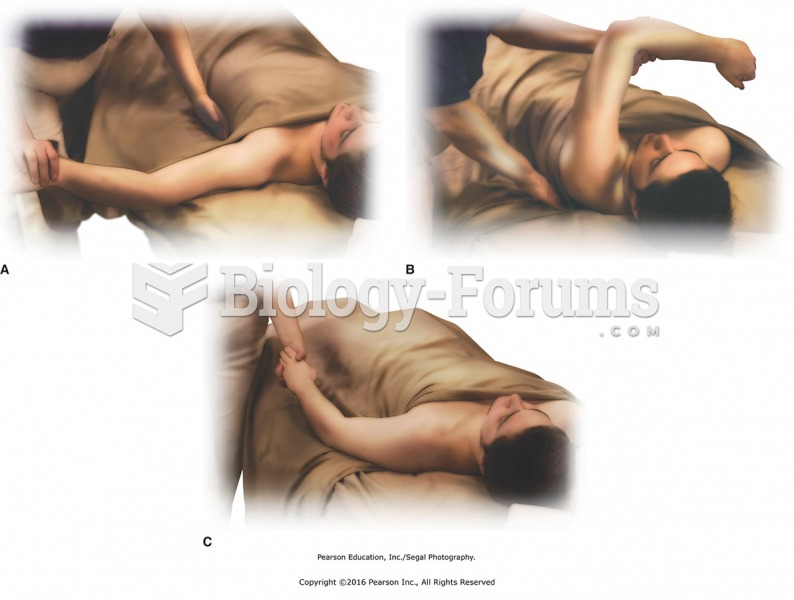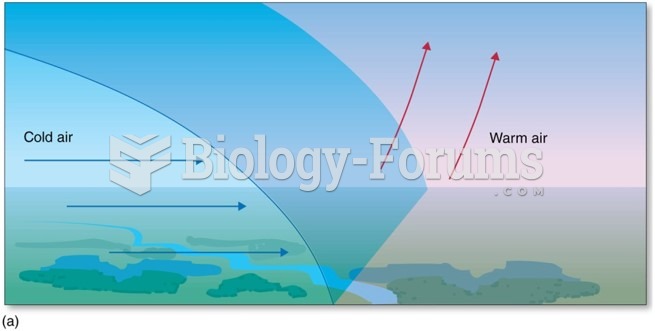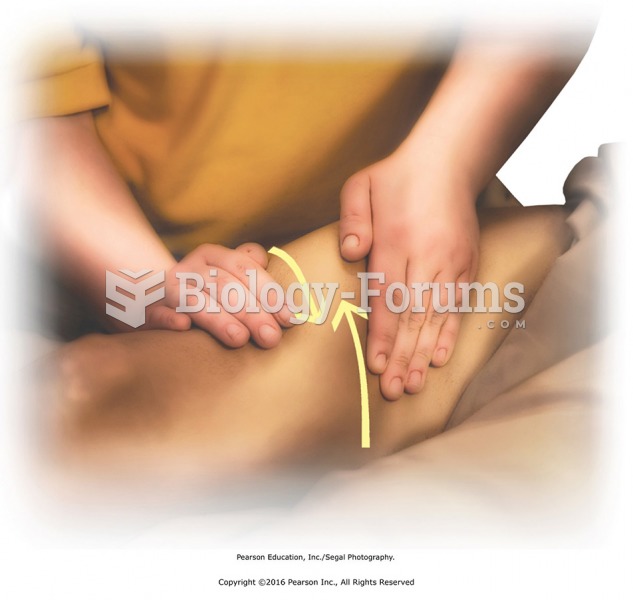|
|
|
The human body produces and destroys 15 million blood cells every second.
Women are 50% to 75% more likely than men to experience an adverse drug reaction.
During the twentieth century, a variant of the metric system was used in Russia and France in which the base unit of mass was the tonne. Instead of kilograms, this system used millitonnes (mt).
As many as 28% of hospitalized patients requiring mechanical ventilators to help them breathe (for more than 48 hours) will develop ventilator-associated pneumonia. Current therapy involves intravenous antibiotics, but new antibiotics that can be inhaled (and more directly treat the infection) are being developed.
All adults should have their cholesterol levels checked once every 5 years. During 2009–2010, 69.4% of Americans age 20 and older reported having their cholesterol checked within the last five years.
 Draping for massage of arm. A. Hold arm to side and tuck drape at ribs. B. Lift arm across chest and ...
Draping for massage of arm. A. Hold arm to side and tuck drape at ribs. B. Lift arm across chest and ...
 Apply effleurage and direct pressure on attachments of pectoralis minor. Lift one arm off the table ...
Apply effleurage and direct pressure on attachments of pectoralis minor. Lift one arm off the table ...





